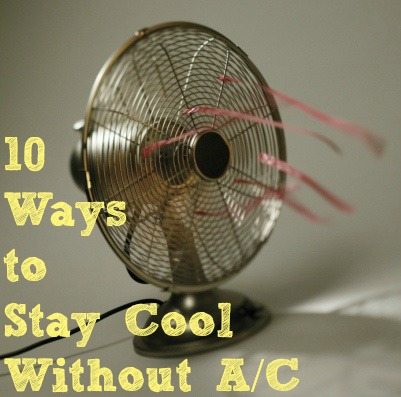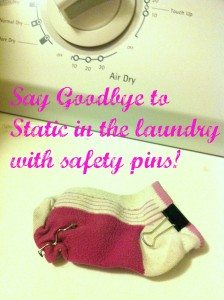 Earlier this year I shared how we survived the June heat wave without a/c for ten days as ours was being replaced. A lot of what we learned then has helped us keep our home cooler, for less, during the past two big heat waves. My father is an HVAC expert, and has shared many efficiency tips with us over the years. Here’s my top ten tips for keeping your home cooler during this heat wave and lowering your electric bill at the same time.
Earlier this year I shared how we survived the June heat wave without a/c for ten days as ours was being replaced. A lot of what we learned then has helped us keep our home cooler, for less, during the past two big heat waves. My father is an HVAC expert, and has shared many efficiency tips with us over the years. Here’s my top ten tips for keeping your home cooler during this heat wave and lowering your electric bill at the same time.
- 1. Turn off the lights. A traditional 60 watt incandescent bulb can heat a small room as much as five degrees in one hour. If it is a higher wattage, like 100 watts, the bulb can heat the room as much as 11 degrees in an hour. Ninety-five percent of the electricity used in traditional bulbs is expended in heat, not light. So turn those lights off! While CFL’s are much better than traditional bulbs at heating up, they do still put off some heat–so turn them off when you don’t absolutely need them.
- 2. Open windows as much as you can during the cooler evening hours, then close them once the temperature crosses 75 degrees. This will trap the cooler night air inside the house.
- 3. Close the blinds and the drapes all the way. The sun coming in through them is one of the biggest sources of indoor heating, even if it isn’t direct sunlight.
- 4. Turn off and unplug electronics that aren’t in use. Things like cable boxes, computers, monitors, TVs, and coffee makers all put out heat into your room. I suggest unplugging most of them because they continue to draw power, even when turned off. A recent study showed that the typical DVR box consumes as much power as a refrigerator!
- 5. Don’t wash clothing or dishes during the heat of the day. The dishwasher, washing machine and the dryer put out large amounts of heat into your rooms. Instead, use overnight cycles if you can, or wash them after 8 p.m. For the dishwasher, skip the dry cycle. The dishwasher puts out a lot of heat as it runs, with the dry cycle the worst. Instead of using the dry cycle, open the door slightly and let the dishes air-dry.
- 6. Change the house a/c fan from ‘auto’ to ‘on.’ While this technically will use more electricity, it is minimal, and will keep the air moving in your home all of the time, making it feel cooler overall.
- 7. Use your ceiling fans to circulate air. This not only keeps the room feeling cooler, but it also helps to make sure that the air circulates more efficiently for the thermostat and air returns to gauge the actual temperature of the rooms.
- 8. Place fans on the floor of your rooms, pointed upward towards the center of the room. Because cold air falls and warm air rises, cool air settles on the floor. Using a fan at floor level pulls the cool air back up and circulates it through the center of the room.
- 9. Close doors to the basement, and down any stairwells. Again, cold air falls, while heat rises. If you have basement doors open, then the cold air from upstairs is falling down the stairs, where you likely don’t need it!
- 10. Close air vents and doors to rooms that don’t need to be cooled. Closets, storage rooms, bathrooms, guest rooms–these all can be temporarily closed off forcing the cooler air into the rooms you do use on a regular basis.
















